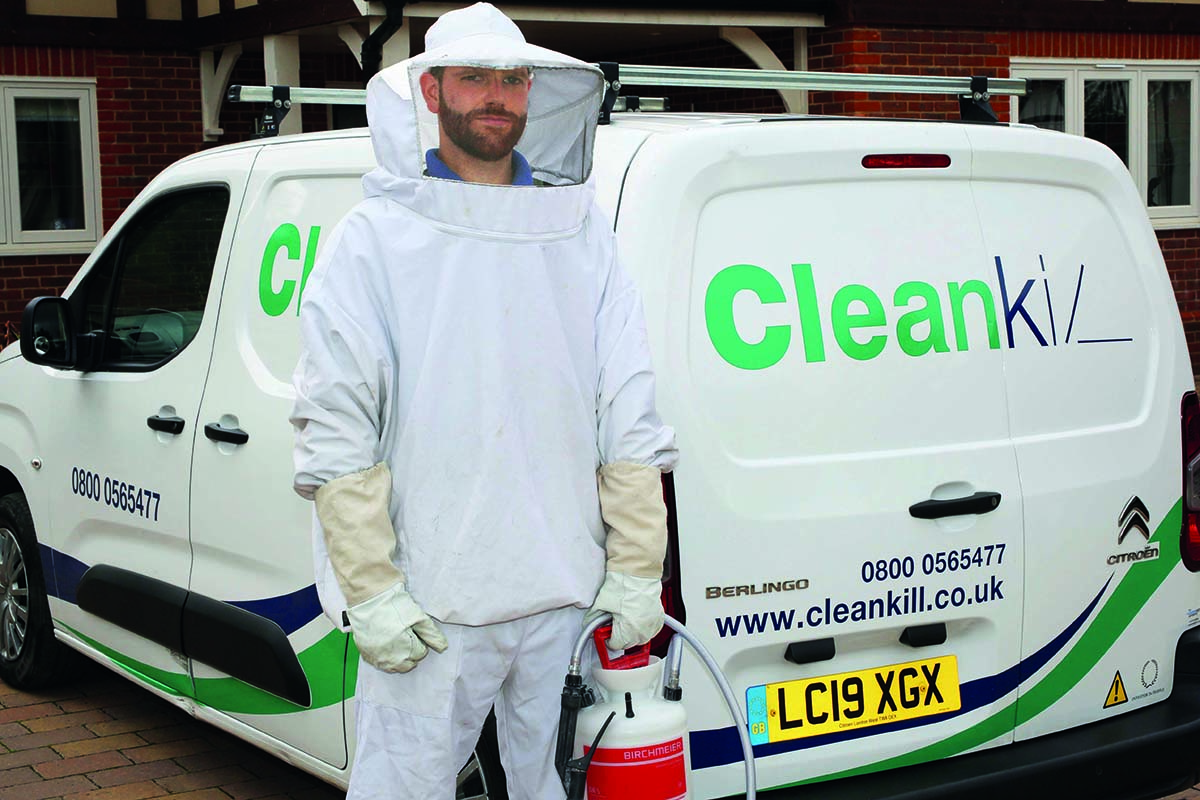
Summer is on the way – and so are the insects. Wasps, flies and ants will soon start to multiply in abundance, but it’s wasps that Cleankill receives the most calls about at this time of year through until the late autumn.
There are many types of wasps, and some types of bees look very similar to wasps. Pest controllers often take calls from homeowners convinced they have wasps, but it turns out they have bees.
Cleankill Pest Control Managing Director Paul Bates explains: “There are around 250 types of bee in the UK, including 25 bumblebees and one type of honeybee. Many species of bee are considered ‘endangered’. It is important to remember that bees are beneficial and vital insects, and are not normally considered as pests.
“Bees are very important pollinators – they pollinate about a third of everything we eat. Although many bee species have stings, they will only sting people if strongly provoked and, because they are so beneficial, every effort should be made to avoid controlling or destroying them.”
“In the spring, we begin to see many UK bee species becoming more active. This increase in activity can cause unnecessary confusion and concern for some people. Honeybees are frequently mistaken for wasps. However, wasps don’t become active in large numbers until early summer, so if you see a buzzing insect in the spring it is more likely to be a bee than a wasp.”
Incorrect identification of wasps is one of the many reasons that it’s important to use a professional pest controller who has the knowledge and skill to correctly identify a pest. He or she can then decide the most appropriate course of action.
The saying, “You pay peanuts and you get monkeys” applies equally to pest control. Bargain wasp nest treatments you might see advertised are cheap for a reason. You risk someone who could use insecticide indiscriminately and in a way that could be harmful to your family and pets. If they have to go in your loft-space, it’s unlikely they have the correct insurance and will be careful with your property.
Unless the nest is still tiny – the size of a golf ball – and can be easily removed do not risk any form of DIY pest control. It’s well worth checking garages and sheds for nests before they become large.
An average nest in late summer can contain up to 10,000 wasps and this can represent a major problem. There have occasionally been incidents of people being stung and suffering anaphylaxis, which can be fatal if not treated quickly.
Bates continues: “It is extremely important that people don’t try to tackle large nests themselves as, unlike bees, wasps continue to sting without dying and send out signals to other wasps to join in. They have more of a hooligan mentality than other similar species and their instinct is to protect the nest. The best advice is to call a professional pest controller who has the correct training and equipment to deal with your nest problem safely and efficiently.”
Award-winning Cleankill’s staff are highly trained and offer an exceptionally fast and efficient level of service. The company holds ISO9001, ISO14001 and Altius Elite Vendor accreditations.
Cleankill is a British Pest Control Association member and also fully accredited to the Safecontractor, Constructionline and Achilles Health and Safety schemes.
For expert advice and a free survey contact Cleankill Pest Control on 020 8668 5477.
www.cleankill.co.uk





